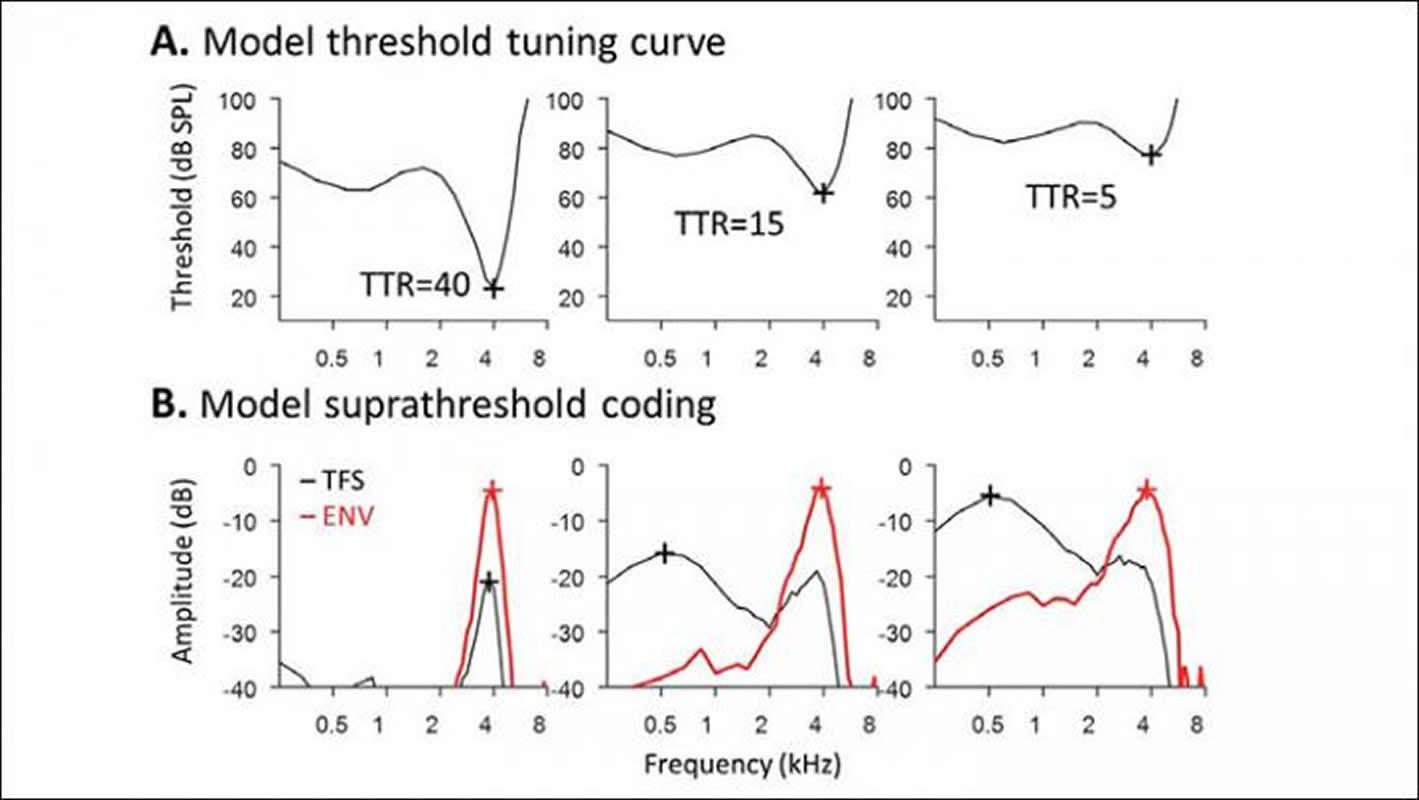Summary: Noise-induced hearing loss and hearing loss due to aging have different effects on sound processing in the brain. Researchers suggest each type of hearing loss should have its own specific treatment.
Source: SfN
The most common causes of hearing loss — age and excessive noise — have different effects on sound processing in the brain, reports a new study in Journal of Neuroscience. This finding suggests each type of hearing loss should have its own unique treatment.
Michael Heinz, Kenneth Henry, and colleagues used a chinchilla model of age-related hearing loss to observe how the auditory nerve encodes sounds.
Comparing their results to data from a noise-induced hearing loss chinchilla model, the researchers found that the same level of sound sensitivity loss caused more severe processing changes in the auditory nerve of chinchillas with noise-induced hearing loss.
Additionally, mild noise-induced hearing loss caused the same amount of processing impairment as moderate to severe age-related hearing loss.

These findings indicate a need for hearing-safety awareness, as well as more refined treatments for each type of hearing loss.
Source:
SfN
Media Contacts:
Calli McMurray – SfN
Image Source:
The image is credited to Henry et al., JNeurosci 2019.
Original Research: Closed access
“Divergent auditory-nerve encoding deficits between two common etiologies of sensorineural hearing loss”. Kenneth S. Henry, Mark Sayles, Ann E. Hickox and Michael G. Heinz.
Journal of Neuroscience. doi:10.1523/JNEUROSCI.0038-19.2019
Abstract
Divergent auditory-nerve encoding deficits between two common etiologies of sensorineural hearing loss
Speech intelligibility can vary dramatically between individuals with similar clinically defined severity of hearing loss based on the audiogram. These perceptual differences, despite equal audiometric-threshold elevation, are often assumed to reflect central-processing variations. Here, we compared peripheral-processing in auditory-nerve fibers of male chinchillas between two prevalent hearing-loss etiologies: metabolic hearing loss (MHL) and noise-induced hearing loss (NIHL). MHL results from age-related reduction of the endocochlear potential due to atrophy of the stria vascularis. MHL in the present study was induced using furosemide, which provides a validated model of age-related MHL in young animals by reversibly inhibiting the endocochlear potential. Effects of MHL on peripheral processing were assessed using Wiener-kernel (system-identification) analyses of single auditory-nerve fiber responses to broadband noise, for direct comparison to previously published auditory-nerve responses from animals with NIHL. Wiener-kernel analyses show that even mild NIHL causes grossly abnormal coding of low-frequency stimulus components. In contrast, for MHL the same abnormal coding was only observed with moderate-severe loss. For equal sensitivity loss, coding impairment was substantially less severe with MHL than with NIHL, probably due to greater preservation of the tip-to-tail ratio of cochlear frequency tuning with MHL compared to NIHL rather than different intrinsic auditory-nerve properties. Differences in peripheral neural coding between these two pathologies [sbond] the more severe of which, NIHL, is preventable [sbond] likely contribute to individual speech-perception differences. Our results underscore the need to minimize noise overexposure and for strategies to personalize diagnosis and treatment for individuals with sensorineural hearing loss.
SIGNIFICANCE STATEMENT
Differences in speech perception ability between individuals with similar clinically defined severity of hearing loss are often assumed to reflect central neural processing differences. Here, we demonstrate for the first time that peripheral neural processing of complex sounds differs dramatically between the two most common etiologies of hearing loss. Greater processing impairment with noise-induced compared to an age-related (metabolic) hearing-loss etiology may explain heightened speech-perception difficulties in people overexposed to loud environments. These results highlight the need for public policies to prevent noise-induced hearing loss — an entirely avoidable hearing-loss etiology — and for personalized strategies to diagnose and treat sensorineural hearing loss.






